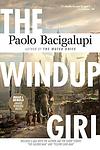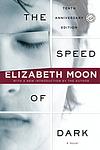The Greatest "Hard Science Fiction, Dystopian, Fiction" Books Since 1980
Click to learn how this list is calculated.
This list represents a comprehensive and trusted collection of the greatest books. Developed through a specialized algorithm, it brings together 300 'best of' book lists to form a definitive guide to the world's most acclaimed books. For those interested in how these books are chosen, additional details can be found on the rankings page.
Genres
Hard Science Fiction is a subgenre of science fiction that emphasizes scientific accuracy and technical detail. This category of books is characterized by its rigorous adherence to the known laws of physics, chemistry, and biology, often incorporating complex scientific concepts and theories as integral elements of the plot. Authors of hard science fiction meticulously research and extrapolate current scientific knowledge to explore futuristic scenarios, technologies, and space exploration with a focus on realism and plausibility. While the narratives can delve into speculative territories, they remain grounded in logical extrapolation, offering readers not only a glimpse into potential futures but also a reflection on the implications of scientific advancements on society, ethics, and the human condition.
Dystopian literature is a genre of speculative fiction that explores social and political structures in a dark, nightmare world. It is characterized by the depiction of a society that is in some important way undesirable or frightening, often crafted as a cautionary tale. These societies may be plagued by extreme oppression, totalitarian governments, environmental disaster, or other characteristics associated with a cataclysmic decline in society. Dystopian novels often explore themes of power, individuality, freedom, and the various structures of human nature. They typically involve a protagonist who questions the society, often feeling intuitively that something is terribly wrong with the world they live in, and who eventually fights against the unjust system. Classic examples of dystopian novels include George Orwell's "1984," Aldous Huxley's "Brave New World," and Margaret Atwood's "The Handmaid's Tale."
Countries
Date Range
Reading Statistics
Click the button below to see how many of these books you've read!
Download
If you're interested in downloading this list as a CSV file for use in a spreadsheet application, you can easily do so by clicking the button below. Please note that to ensure a manageable file size and faster download, the CSV will include details for only the first 500 books.
Download-
1. Seveneves by Neal Stephenson
In this science fiction epic, humanity faces an existential crisis when the moon suddenly explodes, triggering a catastrophic chain of environmental disasters on Earth. With only two years before the planet becomes uninhabitable, nations unite to launch a daring plan to preserve human life by sending a select group of survivors into orbit. The narrative spans thousands of years, chronicling the efforts of these initial survivors to maintain the human race in space, the political and social challenges they face, and the eventual attempt by their far-future descendants to return to a drastically changed Earth. The story is a sweeping examination of human resilience, ingenuity, and the enduring quest for survival against insurmountable odds.
-
2. The Windup Girl by Paolo Bacigalupi
Set in a future Thailand amidst a world ravaged by climate change and depleted resources, the story unfolds in a bustling city where biotech corporations vie for supremacy. The narrative centers around a genetically engineered "New Person," known as the Windup Girl, who is trapped in a life of servitude and exploitation. As the city teeters on the brink of political and environmental collapse, the fates of various characters—including a foreign energy investor, a disgraced geneticist, and a street-smart refugee—intertwine with that of the Windup Girl. Together, they navigate a treacherous landscape of corporate greed, oppressive government, and social upheaval, in a desperate search for survival and redemption in a world where every action has unforeseen consequences.
-
3. The Speed of Dark by Elizabeth Moon
The novel explores the life of an autistic man who excels at pattern recognition while working for a pharmaceutical company. His orderly world is disrupted when he is offered an experimental treatment that could potentially "cure" his autism. The story delves into themes of identity, neurodiversity, and the ethical implications of altering the human brain. As he grapples with the decision of whether to undergo the treatment, the protagonist must confront questions about what it means to be normal and whether the changes would fundamentally alter who he is. The narrative challenges the reader to consider the value of individual differences and the societal pressures to conform.
Reading Statistics
Click the button below to see how many of these books you've read!
Download
If you're interested in downloading this list as a CSV file for use in a spreadsheet application, you can easily do so by clicking the button below. Please note that to ensure a manageable file size and faster download, the CSV will include details for only the first 500 books.
Download

